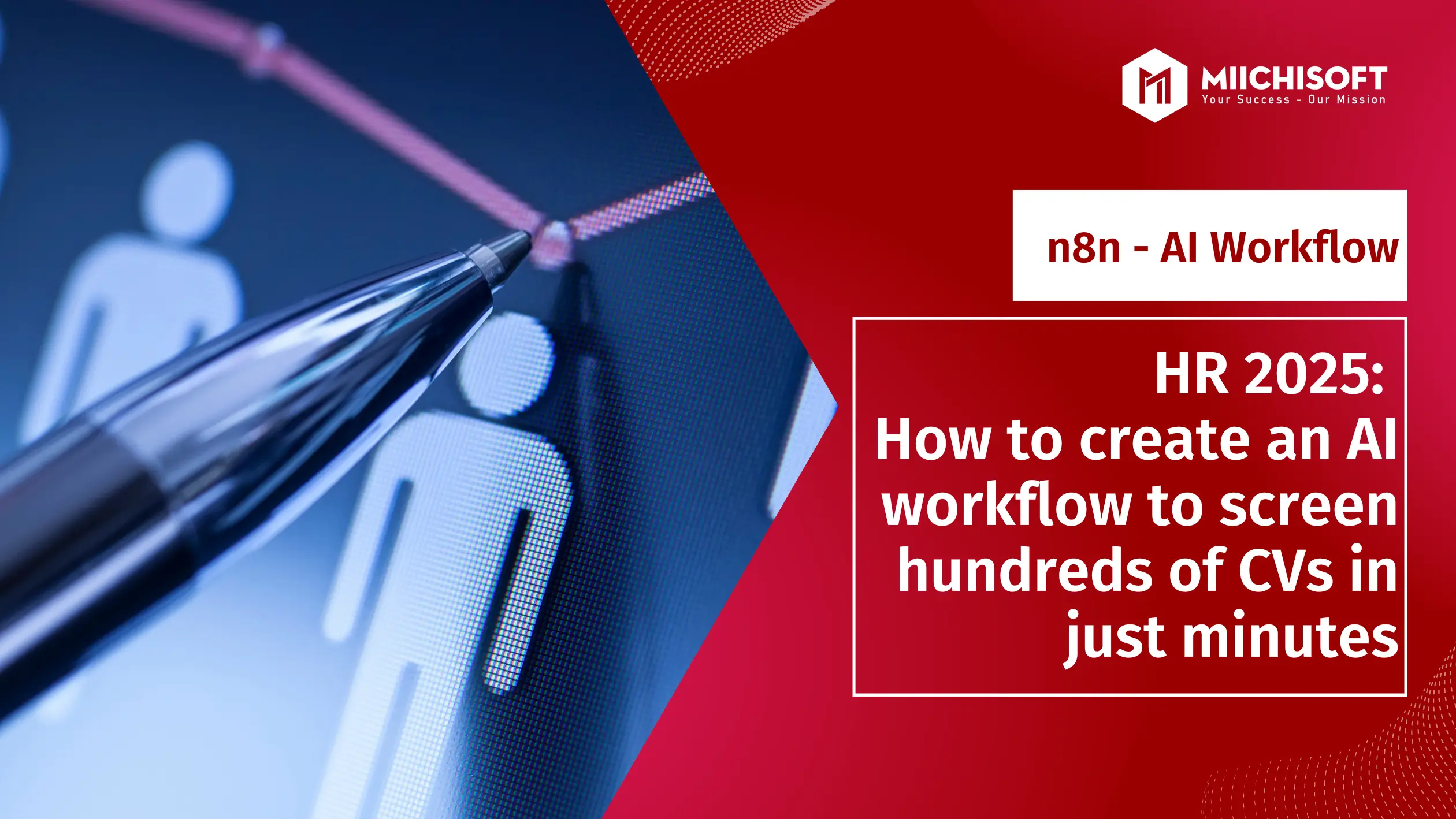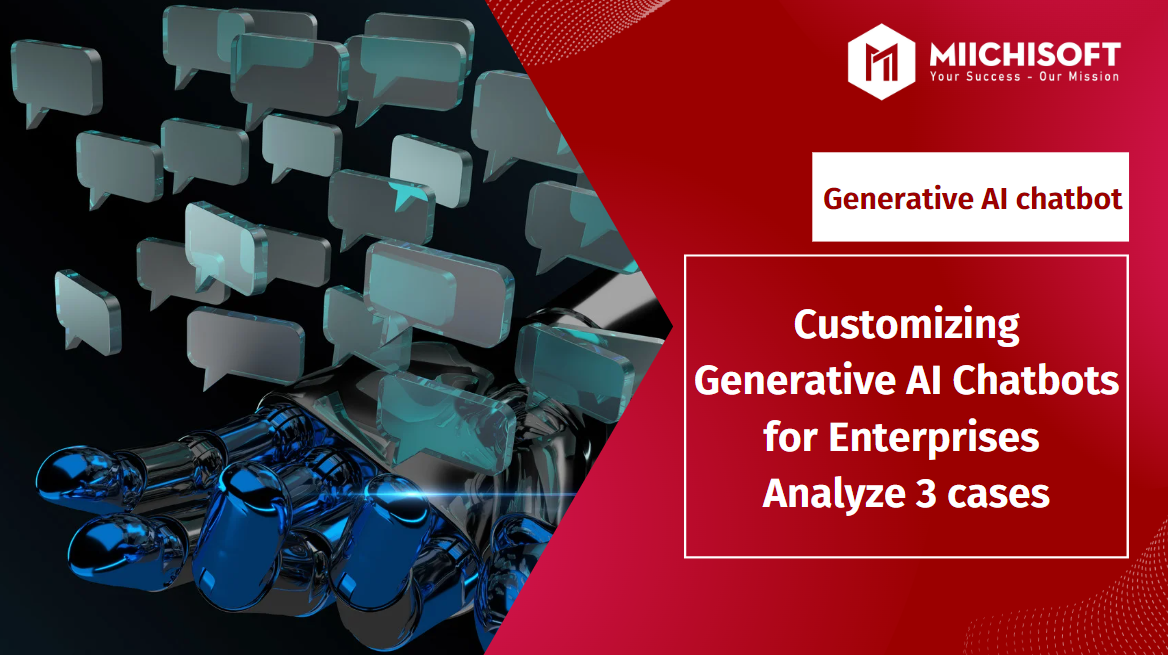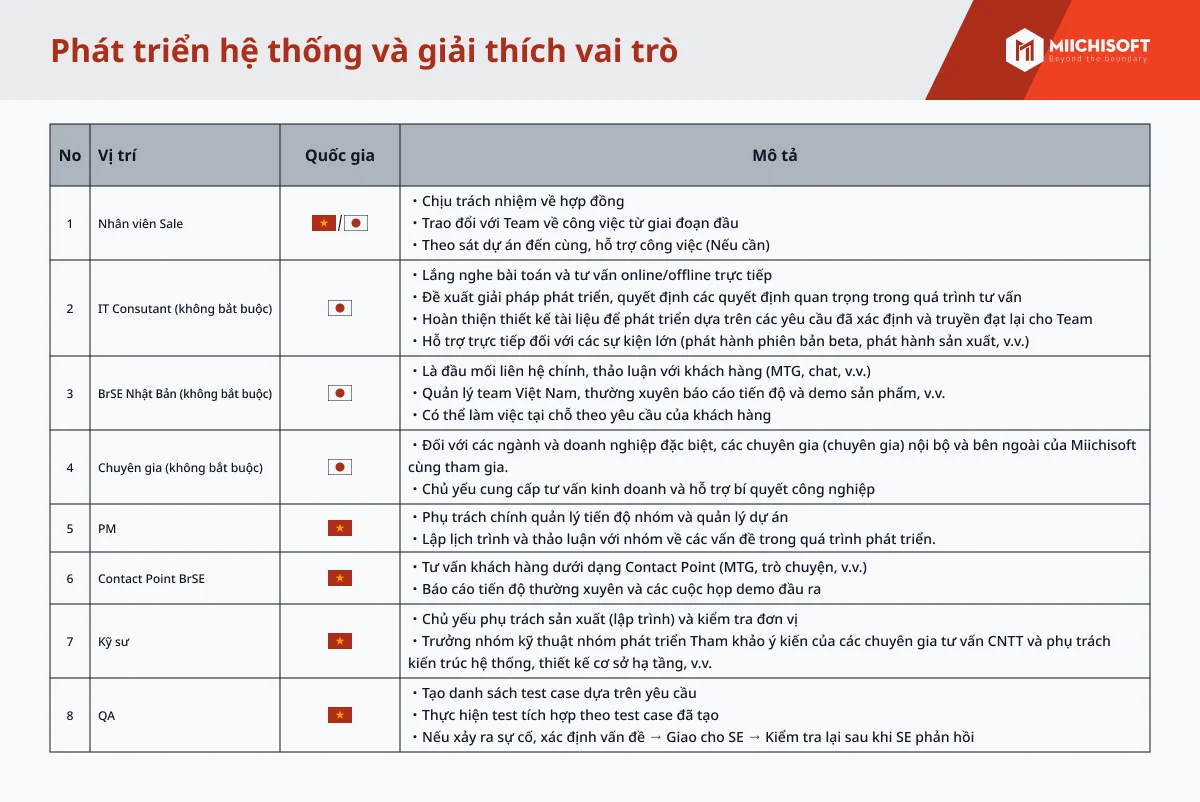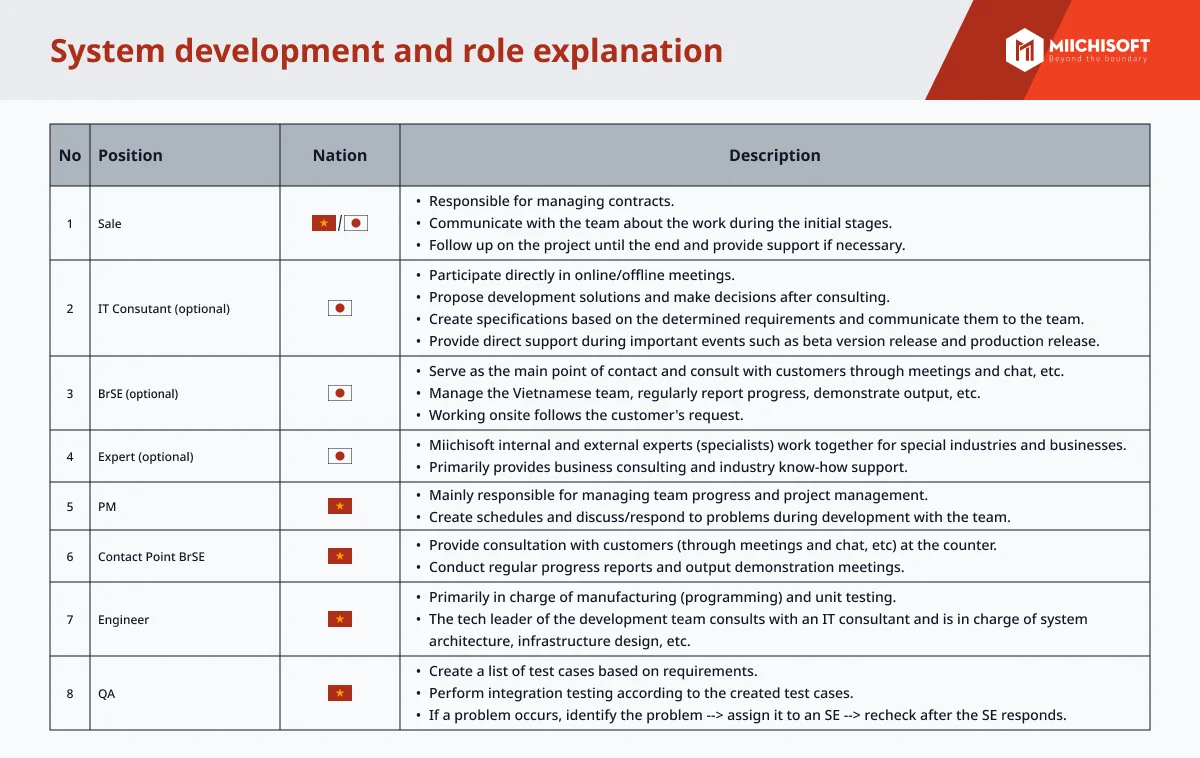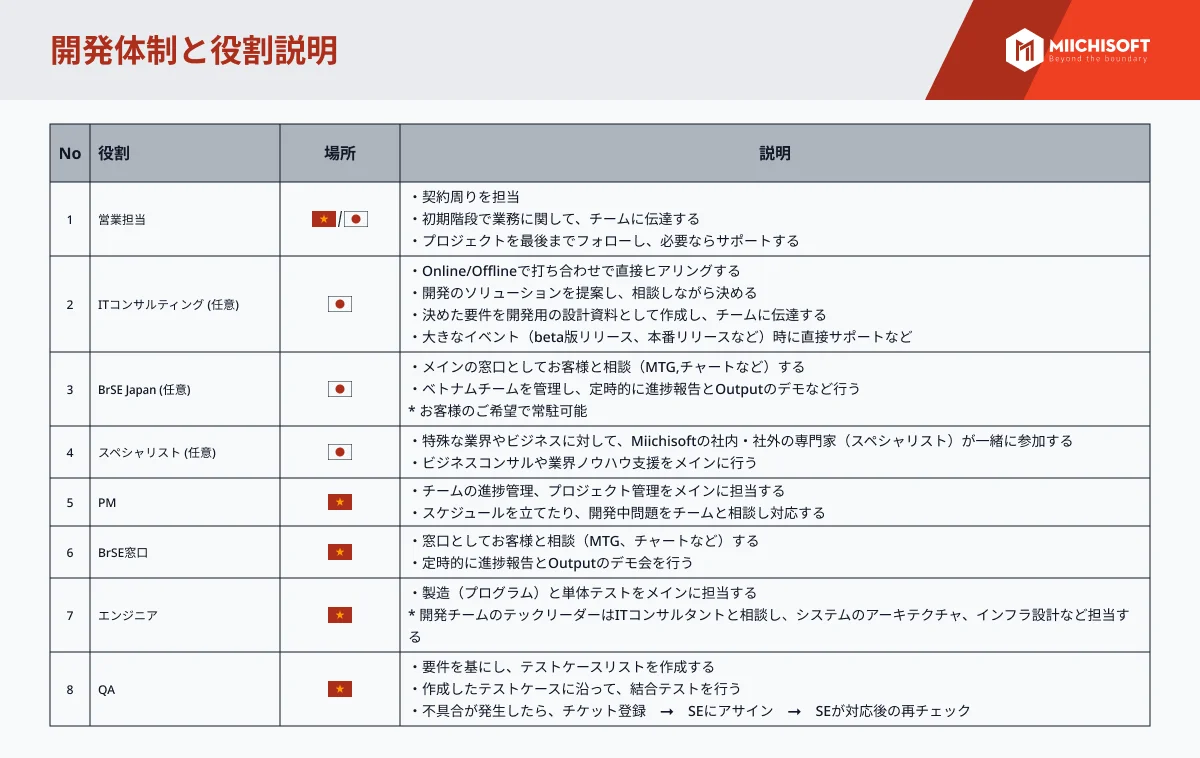As digital transformation accelerates, two factors are becoming clear differentiators for businesses: the ability to automate internal workflows and the effective use of artificial intelligence in day-to-day operations. This has fueled the rise of multiple workflow automation platforms, with n8n, Dify AI, and Make standing out as the most notable solutions today.
The real challenge is not about which platform is “better,” but about which one is the right fit for your organization’s systems, teams, and level of readiness. This article takes a closer look at each platform, breaking them down across key decision-making factors to help businesses identify the most suitable solution.
1. Overview of 3 most popular workflow automation platforms
1.1 n8n – Open-source Workflow Automation Platform
n8n is an open-source workflow automation platform that enables businesses to build automated workflows through a visual, node-based interface. Its key strength lies in flexible API connectivity, handling complex logic, and the option to self-host for full control. For companies with in-house technical teams, n8n offers virtually unlimited customization when designing workflows tailored to specific business needs.
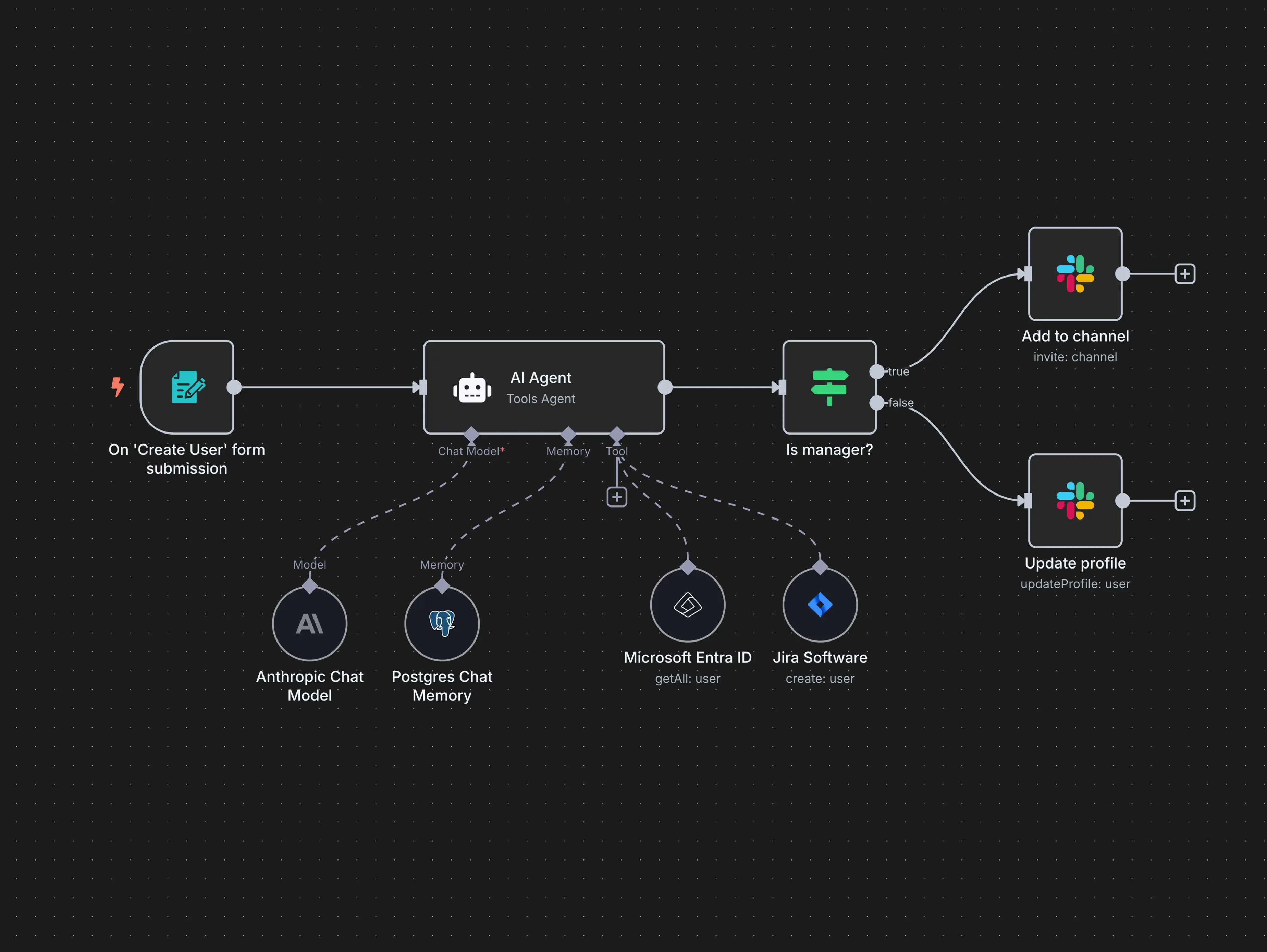
Key Features:
- Flexible deployment (Self-host or Cloud): Install n8n on internal infrastructure for full data control, or use the cloud version to reduce maintenance overhead.
- Extensive integrations: Over 300 prebuilt nodes for connecting with CRMs, databases, internal messaging systems, and SaaS platforms.
- Custom code support: Developers can insert JavaScript directly into workflows to handle specialized logic or integrate APIs not yet supported.
- Strong open-source community: As an open-source tool, n8n is continuously updated with plugins, new features, and best practices contributed by a global community.
Learn more: How n8n streamlines hundreds of CVs: Guide to Building an AI Workflow with n8n
1.2 Dify AI – Low-code Platform for Rapid AI Application Development
Dify AI is a workflow automation platform built for creating AI-powered applications, especially those leveraging Generative AI. With Dify, businesses can develop chatbots, AI assistants, or content generation tools within hours without the need to build backend systems from scratch. As an AI-first platform, it is built around large language models (LLMs), making AI adoption faster and easier.
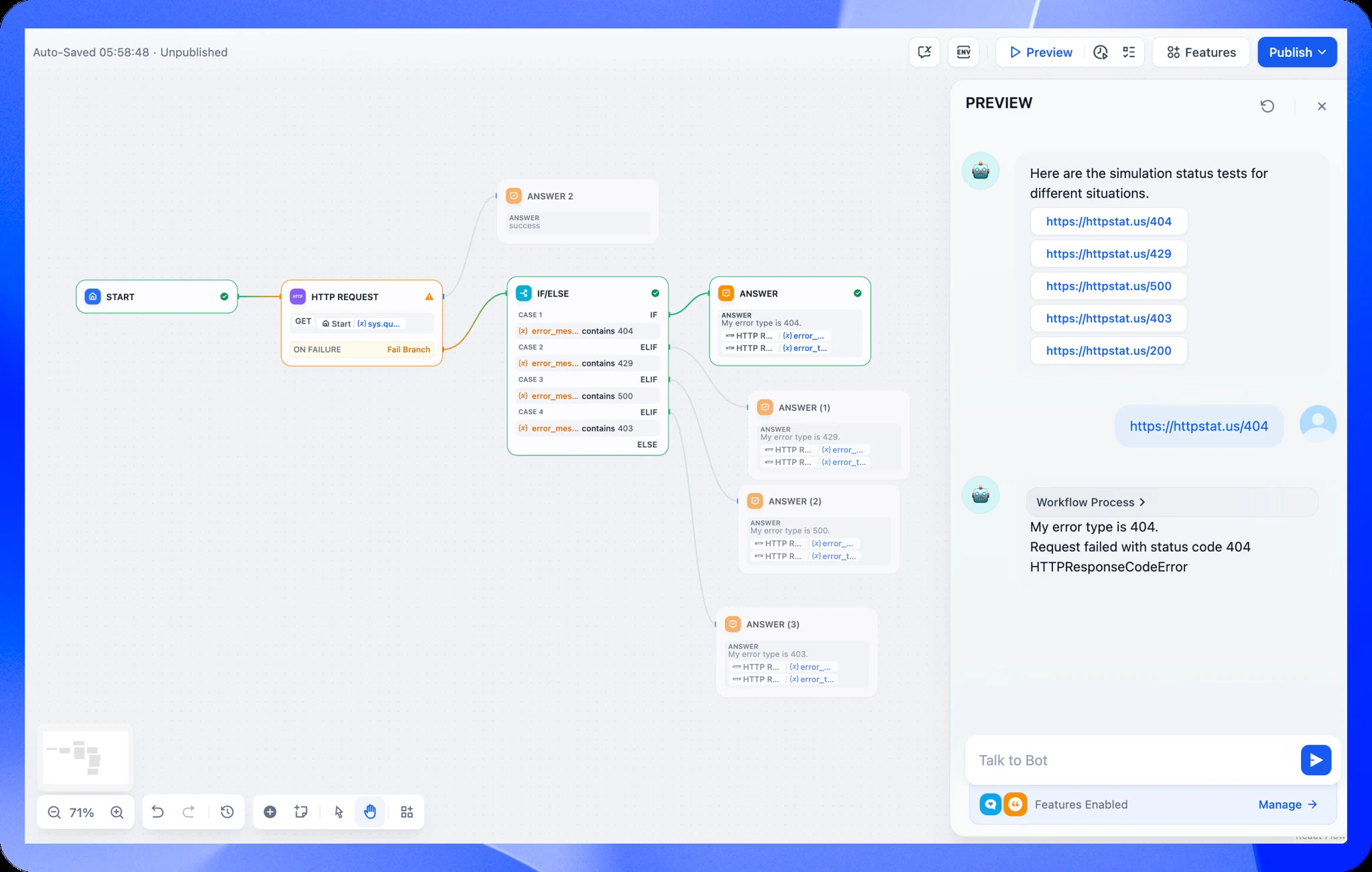
Key Features:
- Low-code AI development: Build chatbots or internal AI apps quickly without complex coding, making it accessible even for non-developer teams.
- Prebuilt AI workflows: Ready-to-use templates (chatbots, content generation, RAG, etc.) help businesses launch and test within hours.
- LLM integration: Supports models like GPT and Claude, with customization options to match specific business use cases.
- Cloud-based and scalable: Fully operated in the cloud, requiring no local setup, with easy scalability and continuous updates.
1.3 Make – A no-code automation platform for non-technical teams
Make (formerly Integromat) is a no-code platform with a highly visual drag-and-drop interface, designed to automate everyday tasks such as data synchronization, email sending, and CRM updates. Its main advantage is ease of use, making it an ideal choice for marketing, sales, and operations teams without technical expertise.
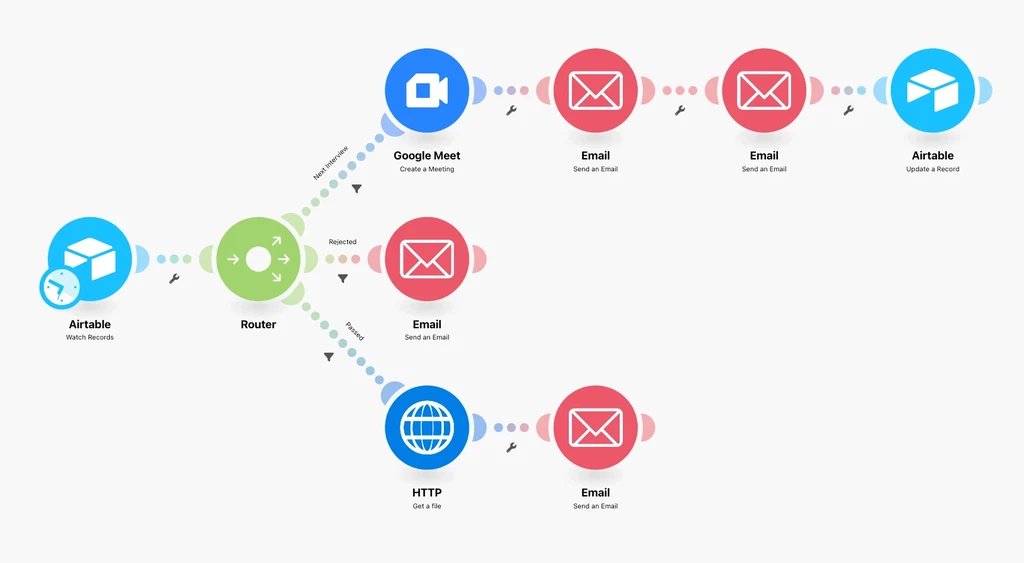
Key Features:
- No-code workflow design: Build automation workflows simply by dragging and dropping modules. Marketing or operations teams can create and manage processes without waiting for IT support.
- Conditional logic & error handling: Workflows can define “if A, then B” rules and manage errors automatically, ensuring smooth execution without interruptions.
- Wide range of integrations: Connect seamlessly with CRM systems, email tools, Google Sheets, or external software via API without writing a single line of code.
- Real-time monitoring and analytics: A built-in dashboard allows teams to track workflow performance, identify errors, and optimize processes more effectively.
2. Comparison of the 3 Most Popular Workflow Automation Platform
2.1 Workflow Automation Capability
When evaluating a workflow automation platform, the first factor to consider is how effectively it can run workflows without manual intervention.
n8n stands out in handling complex workflows, where each step can branch based on specific conditions. For example, if the data meets condition A, it will be sent to the CRM; if it meets another condition, it will be processed differently. This makes n8n suitable for enterprises looking to automate end-to-end operations from CRM and ERP to data pipelines, but it requires technical staff for implementation and ongoing maintenance.
Dify AI focuses on AI-driven workflows such as chatbots, content creation, and text analysis. It is ideal for businesses that want to adopt AI quickly without building backend systems.
Make is best suited for simple automation thanks to its prebuilt templates. Teams like marketing or operations can set up workflows quickly on their own, without relying on IT.
2.2 AI Integration
From an AI perspective, the key difference is not whether AI is available, but how easily and effectively each platform enables businesses to leverage it.
Dify AI is AI-first, with built-in integrations to models like GPT and Claude. It allows direct prompt customization, the ability to attach private data, and the creation of chatbots or content tools, all within the platform interface without a backend. This makes it highly effective for businesses that want to experiment with AI or embed it into products quickly without rebuilding their infrastructure.
n8n and Make both connect to AI via external APIs. In n8n, AI is often placed as one step in a more complex workflow, making it suitable for companies with predefined logic that want AI as an intelligent processing component.
Make, on the other hand, is more straightforward. Its AI use cases focus on smaller tasks like summarizing content or generating text automatically, but it offers limited customization with enterprise-specific data.
2.3 Ease of Use
Ease of use determines how quickly the entire organization can adopt a platform. In reality, if only the technical team can operate it, scaling automation across business or operations departments where most of the practical needs arise becomes challenging.
Make is almost always the fastest choice for non-technical users thanks to its drag-and-drop interface and hundreds of ready-to-use templates.
Dify AI sits in the middle. It requires no coding, but because it focuses heavily on AI, users unfamiliar with concepts like prompts, models, or datasets may still need time to learn how to configure workflows properly.
n8n requires a stronger technical background, from understanding data flows and workflow structures to customizing processes with JavaScript when needed. As such, it is better suited for developers or technically skilled teams rather than business or non-technical users.
2.4 Scalability and Customization
As businesses grow, their automation needs evolve. A suitable platform must allow for scalability and the flexibility to adapt to internal requirements.
n8n is widely regarded as the most scalable, offering virtually unlimited customization. Companies can add new logic, integrate custom APIs, and process large datasets as long as they have an in-house engineering team capable of building and maintaining these workflows.
Dify AI provides flexible scalability within AI-driven use cases, such as expanding chatbot functions or orchestrating new AI agents. However, it is less effective when businesses need to design complex workflows beyond the AI domain.
Make scales well horizontally (adding more workflows), but struggles vertically with deeper logic and custom processing. Since it relies on predefined modules, larger organizations with advanced branching or complex conditions may find its limitations restrictive.
2.5 Deployment & Hosting
Whether a platform runs on the cloud or on-premises is not just a technical matter, it is a strategic decision about data governance. It directly impacts security, compliance with internal regulations, and long-term control over operations.
n8n offers flexibility by supporting both self-hosted and cloud deployment. With the self-host option, all data remains within the company’s infrastructure, making it ideal for industries with strict security requirements such as finance, healthcare, or manufacturing.
Dify AI is available only as a cloud-based service, meaning all data is processed through third-party infrastructure. This allows for extremely fast deployment, but businesses may have less control over security and data ownership.
Make is also a cloud-only platform, enabling rapid rollout without the need to manage servers. However, since all data is processed on Make’s infrastructure, companies in highly regulated industries like finance or sectors with stringent data security requirements may need additional legal or compliance reviews before adoption.
2.6 Cost
Cost should be considered over the entire lifecycle, not just the initial subscription. A platform that looks affordable at first may become expensive once infrastructure management, extra developer resources, or even migration costs are factored in. Moreover, when integrating AI via APIs like OpenAI or Claude, all three platforms incur token costs. The main difference lies in how billing is structured and managed.
n8n is almost free if a company already has internal infrastructure and technical staff, since it is open-source. However, hidden costs arise from server maintenance, security updates, and reliance on in-house expertise. For cloud hosting or high-frequency workflows, fees apply based on the number of users or workflow executions.
Dify AI charges based on AI tasks (tokens, LLM calls, or agents). While initial setup is fast and affordable, costs will scale as usage grows—for example, when running 24/7 chatbots or high-volume content generation.
Make is cost-effective for initial testing or small-scale use, thanks to its low entry price. However, costs rise with the number of workflow runs and the volume of data processed each month. For large-scale or company-wide automation, expenses can quickly escalate especially when additional AI APIs are integrated into workflows
Quick Comparison of 3 Workflow Automation Platforms
| Criteria | n8n | Dify AI | Make |
| Workflow automation | Handles complex, highly customizable processes | Focused on AI-driven workflows | Fast and simple automation |
| AI intergration | Requires external API connection | AI-first, built-in LLM support | Basic AI modules available |
| Ease of use | Requires technical expertise | Moderate (low-code, some AI knowledge needed) | Very easy, drag-and-drop |
| Scalability & Customization | Almost unlimited flexibility | Strong for AI apps, limited beyond AI | Moderate, depends on available templates |
| Hosting & Deployment | Self-host or Cloud | Cloud-only | Cloud-only |
| Cost | Free if self-hosted, Cloud billed by usage | Usage-based AI pricing | Billed by workflow runs and data volume |
| Best fit for? | Companies with dev teams and complex systems
|
Businesses adopting AI quickly without backend dev | SMEs or non-tech teams needing simple flows |
Note: For detailed explanations and real-world examples, see the section “Which platform fits your business? Real-world case studies below.”
3. Pros and Cons of the Three Most Popular Workflow Automation Platforms
3.1 n8n
n8n is an open-source workflow automation platform that businesses can self-host to cut licensing costs while keeping full control of their systems and data. It stands out for its ability to manage complex workflows with deep customization. With n8n, companies can connect almost any API, design multi-step processes with advanced branching, and insert custom JavaScript to handle unique logic.
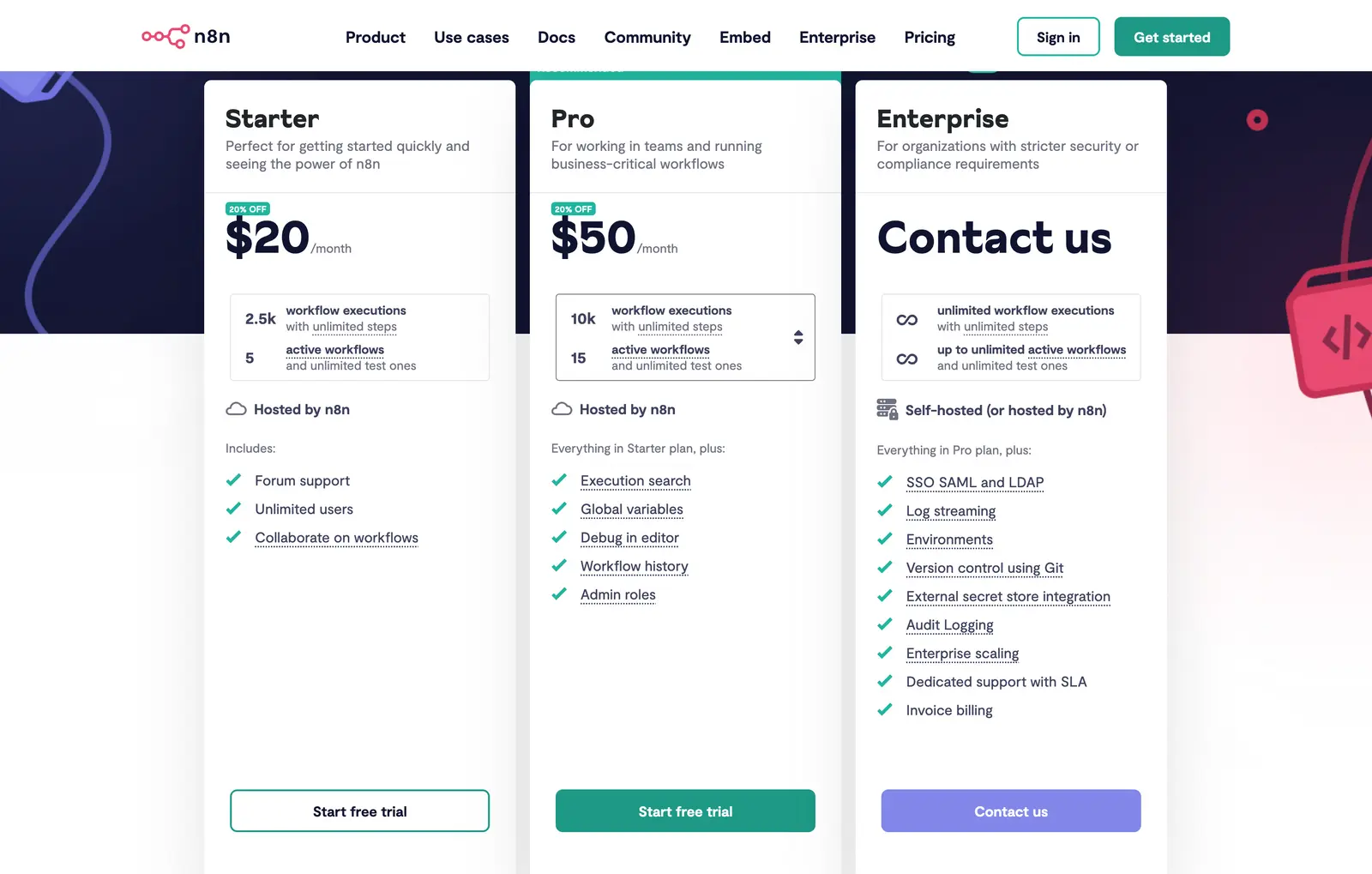
However, the platform requires a technical team for installation, maintenance, and workflow development. Its interface can be challenging for non-technical users, as it often demands a solid understanding of data flows and coding. In addition, AI is not a built-in feature, so integration must be done manually via external APIs.
3.2 Dify AI
Dify AI is designed to help businesses build AI applications quickly without the need for a complex backend. It comes with built-in support for large language models like GPT and Claude, making it easy to create internal chatbots, content generation tools, or Q&A systems based on company data. Prebuilt AI templates also shorten the time to test ideas and launch MVPs.
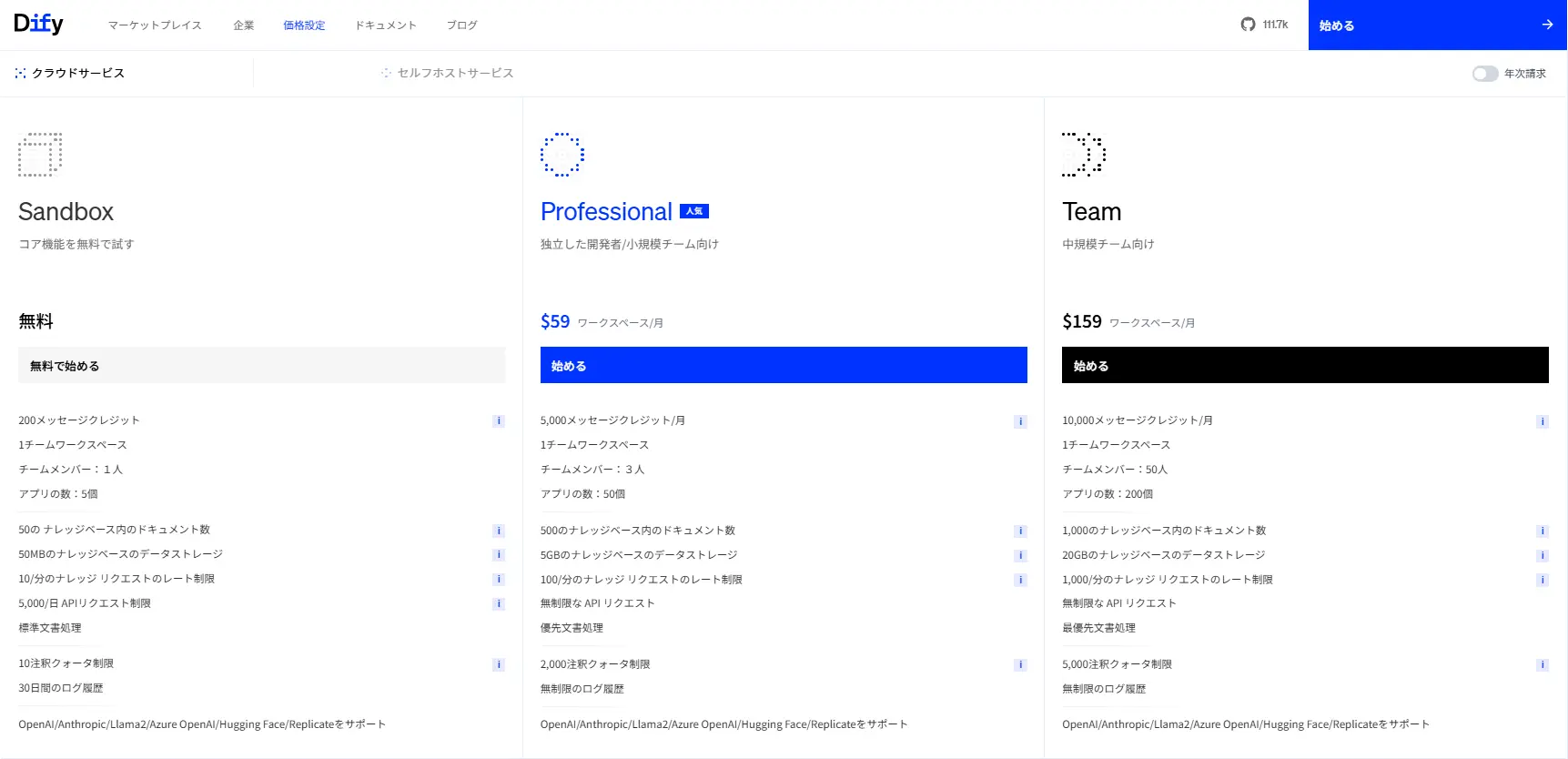
The limitation is that Dify mainly excels in AI-related workflows. Pure automation tasks such as CRM data processing or internal system integration are harder to build or may require pairing with another platform. In addition, Dify is cloud-only, which may not suit businesses with strict security requirements and also means ongoing dependence on LLM token costs.
3.3 Make
Make is a workflow automation platform built for non-technical users thanks to its intuitive drag-and-drop interface and extensive template library. This allows marketing or operations teams to automate a large portion of their daily tasks without involving developers. Learning and deployment are fast, making it especially attractive for SMEs or teams looking for immediate efficiency gains.
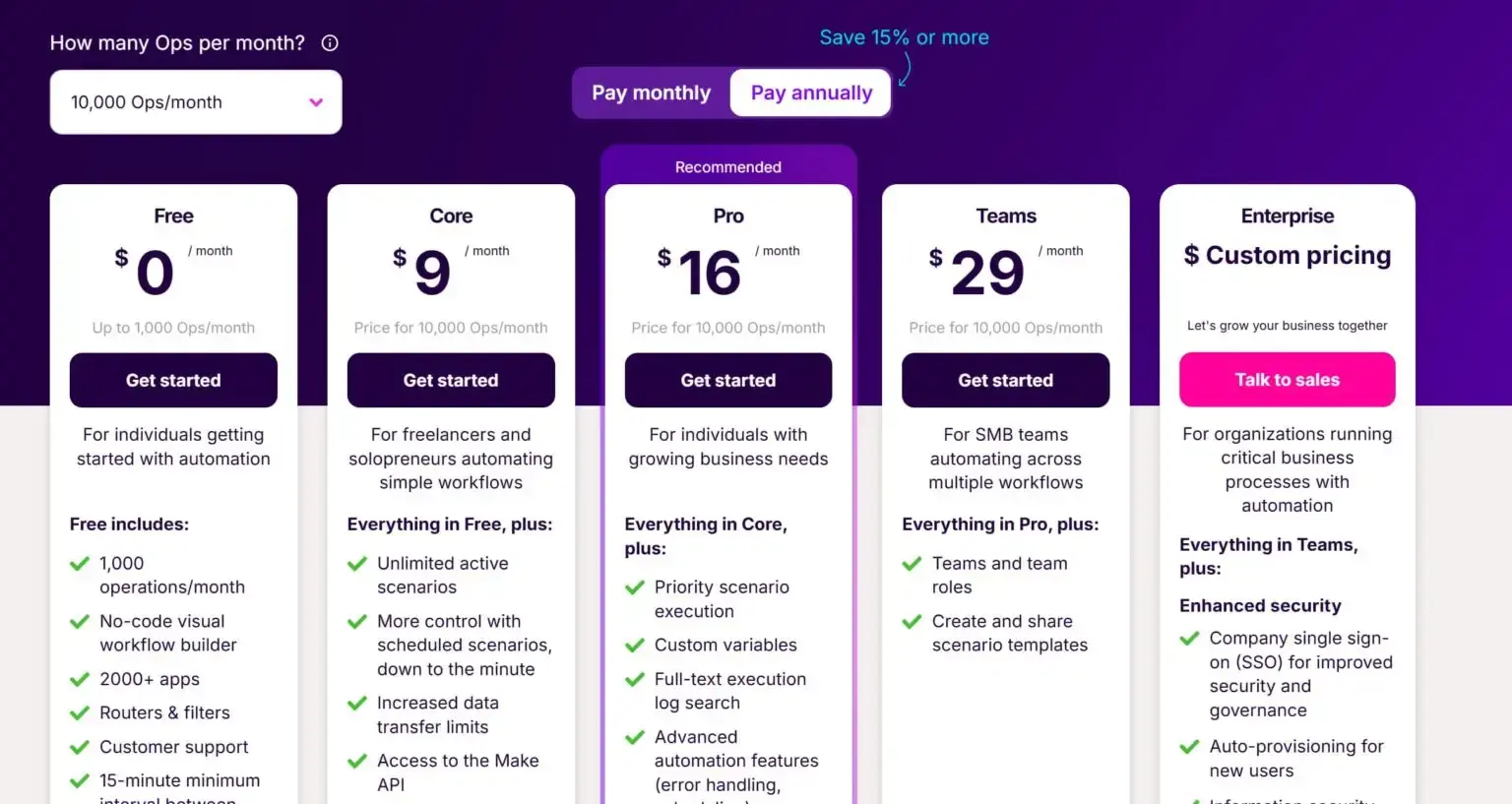
The trade-off is that Make becomes limited when workflows grow more complex with multiple branching conditions, making system-wide control harder. It is also cloud-only, which can raise security concerns for enterprises handling sensitive data. Finally, as pricing scales with the number of workflow runs and data volume, costs can rise quickly if the platform is widely adopted across the organization.
Summary Comparison – Pros & Cons of Three Workflow Automation Platforms
|
Platform |
Advantages |
Limitations |
| n8n | Open-source, highly customizable, flexible API integration | Requires technical team, no native AI features
|
| Dify AI | Rapid AI app development, built-in LLMs, easy for prototyping | Strong only for AI workflows, cloud-only, ongoing AI token costs |
| Make | No-code, user-friendly, rich template library, fast deployment | Limited for complex logic, costs scale with workflow runs |
4. Which platform fits your business? Real-world case studies
4.1 n8n – Best suited for companies with in-house technical teams
n8n is ideal for businesses looking to build long-term, scalable automation systems and manage them independently. It works especially well for companies with complex backend systems, multiple internal APIs, DevOps requirements, or custom data workflows. The self-hosting option also makes it attractive for large enterprises with strict security and compliance needs, as they can keep full control of their infrastructure without relying on third parties.
A notable example is Goomer, a food-ordering platform in Brazil, which has implemented more than 200 workflows using n8n. These workflows automate everything from order intake and data processing to CRM synchronization. This significantly reduced manual work and allowed Goomer to scale operations quickly during periods of high demand without the need for heavy investment in expensive systems.
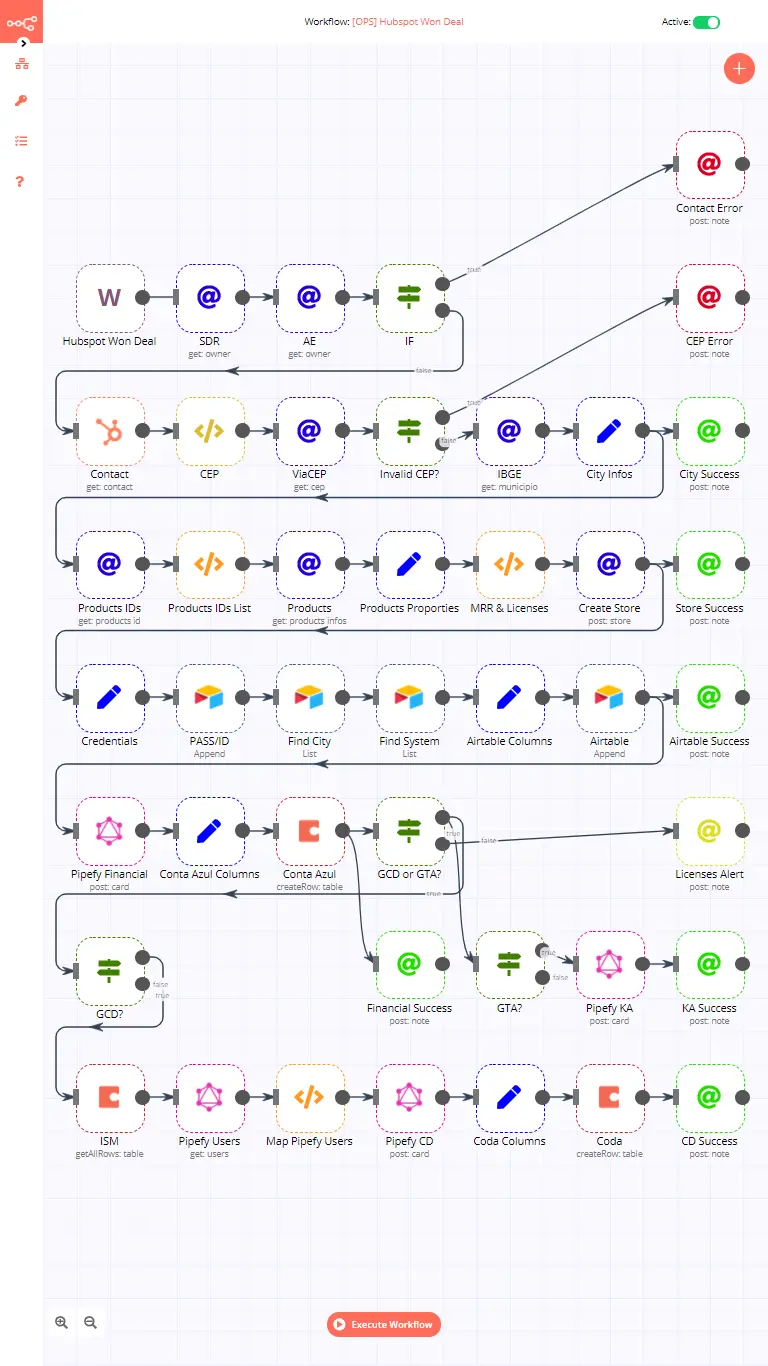
4.2 Dify AI – Designed for businesses that want to adopt AI quickly without building a backend
Dify AI is a workflow automation platform designed for building AI-powered tools like chatbots, AI assistants, content generators, or text analysis apps. It removes the need for a dedicated backend team, making it ideal for AI startups that need to validate concepts quickly. Traditional enterprises can also benefit by integrating AI into their products without the burden of heavy infrastructure investment.
In just a one-month trial, a global smart device manufacturer used Dify to build over 200 internal AI applications, more than 60 of which became actively used. The most popular app alone recorded nearly 10,000 interactions. Dify also streamlined their Voice of Customer (VoC) process, reducing analysis time from 8 hours to just 3 hours per task, while scaling review processing capacity from 15,000 to 50,000 reviews per month. This allowed product managers to focus on improving the company’s Net Promoter Score (NPS) instead of spending countless hours on manual data handling.
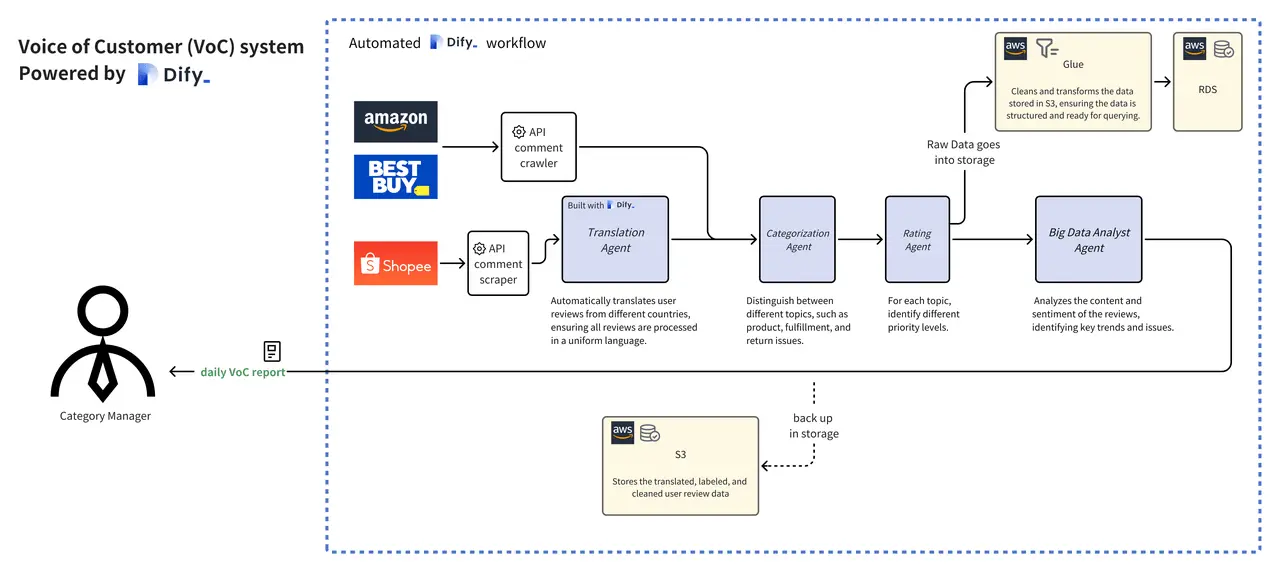
4.3 Make – Ideal for operations and marketing teams without technical expertise
Make is a no-code workflow automation platform ideal for teams without in-house developers. It enables SMEs and operations or marketing teams to automate tasks like CRM updates, reporting, and data syncing across SaaS tools without relying on IT. However, its flexibility decreases as workflows become more complex.
A striking example is Sommo, a no-code product development company. By combining Make with AI, they built an automated Software Requirement Specification (SRS) Generator in just one day. The tool now generates 500–800 additional leads per month, boosted website engagement fivefold, and achieved a 3% conversion rate from leads to customers. This shows how even a single well-designed workflow in Make can deliver outsized business results without requiring complex coding.
5. Still struggling with automation or AI workflows?
Choosing the right workflow automation platform is only the first step. The bigger challenge lies in designing processes, handling data, integrating systems, and ensuring both security and operational efficiency. Without a well-planned roadmap from the start, companies, especially mid-sized and large enterprises undergoing digital transformation, often face hidden costs or even have to redo integrations that were implemented incorrectly.
At Miichisoft, we have built a team of highly skilled engineers with strong system-thinking capabilities, offering structured consulting and hands-on experience from more than 150 successful projects. With internationally recognized certifications such as ISO 27001, ISO 9001, and as an official AWS Consulting Partner, we guarantee that every AI and automation solution we deliver is secure, transparent, and scalable.
If your business is looking for a trusted technology partner to implement automation or integrate AI effectively, securely, and with a long-term vision, reach out to Miichisoft today for a free consultation.
6. Conclusion
n8n, Dify AI, and Make each address different needs and levels of digital maturity. n8n is best suited for technical teams who want full control over workflow design. Dify AI enables businesses to adopt AI quickly without the complexity of building backend systems. And Make empowers non-technical teams to automate workflows instantly with simple drag-and-drop operations.
Depending on your timing and in-house capabilities, one of these platforms will feel like the “right fit.” And once you’ve found that fit, automation and AI stop being a distant strategy, they become something your business can start right now, in a simple yet impactful way.



